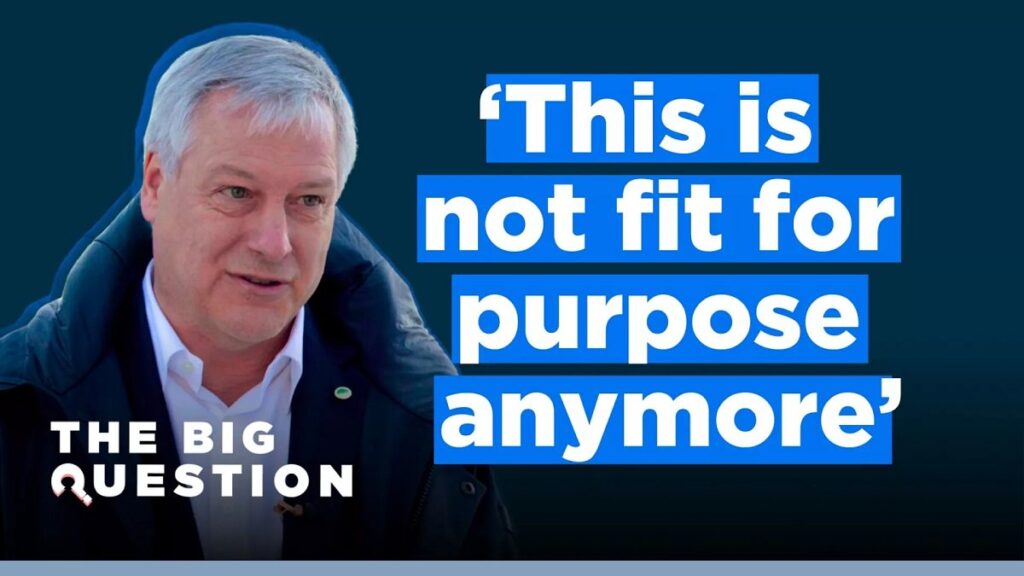Urgency in Power Grid Investments to Meet Europe’s Energy Demands
In a rapidly evolving energy landscape, the call for Europe to significantly increase its investments in power grids has become more pressing than ever. Andreas Schierenbeck, CEO of Hitachi Energy, has highlighted the urgency of this issue, emphasizing the need for infrastructure expansion to meet both current energy demands and future climate goals.
During a discussion on “The Big Question” with Euronews’ Angela Barnes, Schierenbeck pointed out that outdated regulations and protracted permitting processes are major roadblocks in the path towards progress. He stated, “We suddenly find ourselves in a situation where we need much more electrical energy than we thought.” This unexpected demand surge has left the continent grappling to fulfill its energy needs, revealing a significant gap in generation and grid capabilities.
Renewable Energy Bottleneck: 500 GW on Hold
One of the critical challenges underscored by Schierenbeck is the stalling of over 500 gigawatts (GW) of renewable energy capacity, which remains unconnected due to inadequate grid infrastructure. This amount of energy could power 50 billion LED light bulbs or charge approximately 45 million standard electric vehicles. Such limitations threaten Europe’s transition to cleaner energy sources and its ability to meet Paris Agreement targets by 2030.
Regulatory Hurdles in Grid Expansion
Schierenbeck noted that existing regulations, initially crafted to curb unnecessary public expenditure, are now hampering the rapid expansion needed in the energy sector. He explained that, while grid expansion projects typically require seven to eight years, only a fraction of that time is spent on actual construction, with the rest consumed by lengthy approval processes. “Regulations were built to save taxpayers money, not to over-invest,” Schierenbeck said. He warned that the cost of inaction could surpass the expenses of immediate investment.
Collaboration: The Key to Overcoming Challenges
To navigate these hurdles, Schierenbeck advocates for unprecedented collaboration among governments, businesses, and regulators. He urges policymakers to understand the urgency and partner with industry leaders to expedite investments and eliminate bureaucratic barriers. He recalled a past experience in Germany, where regulatory flexibility reduced the timeline of a high-pressure gas pipeline project from several years to just nine months, illustrating the potential of adaptive strategies.
Hitachi Energy is actively engaged in enhancing its production capacity and developing innovative grid technologies to facilitate the energy transition. The company recently announced over €30 million in investments for upgrading its power transformer manufacturing facility in Bad Honnef, Germany, a project set to conclude by 2026 and create up to 100 new jobs. Similarly, they plan to expand their workforce in Piteå, Sweden, addressing the increasing demand for power transmission equipment driven by the global energy shift.
Potential Consequences of Inaction
Europe faces significant risks if it fails to act swiftly in investing in grid and renewable energy advancements. Energy security, economic stability, and climate commitments hang in the balance. Despite these challenges, Schierenbeck remains cautiously optimistic, believing that innovation coupled with regulatory reforms can still pave the way for a successful energy transition, provided immediate steps are taken.
As Europe navigates these critical energy challenges, its ability to advance its power grid infrastructure will determine its leadership in the clean energy revolution and its commitment to a sustainable future.
Original Story at www.euronews.com
